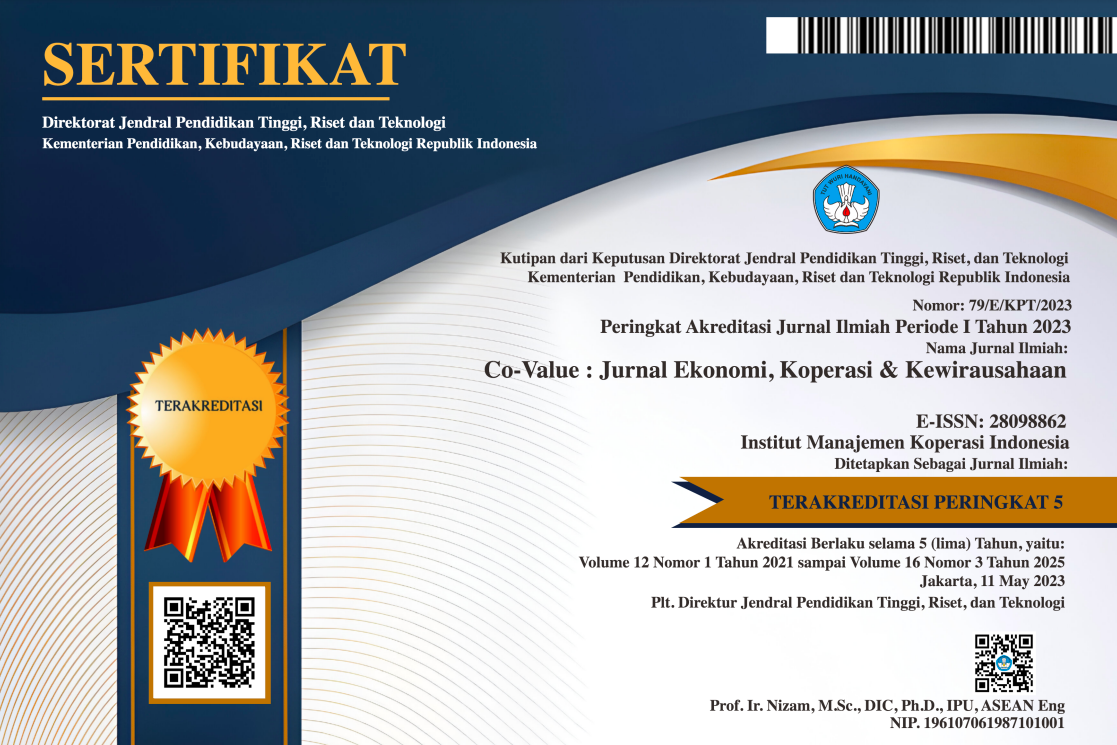Factors Affecting Muslims' Decision in Tangerang Selatan During Recession to Make Sharia Investment
DOI:
https://doi.org/10.59188/covalue.v15i6.4833Keywords:
Sharia Investment, Recession, COVID-19, Sharia Stocks, Islamic EconomicsAbstract
The pandemic has had a significant impact on the global economy, including Indonesia, which experienced a recession in 2020. However, a unique phenomenon occurs in the Islamic capital market, where Islamic stocks show stability and even experience significant increases during the recession. The study explores how the recession affects the decision of Muslims in Indonesia to invest in Sharia and whether Sharia investment can be an effective solution to deal with a recession. Data from the Central Statistics Agency and the Financial Services Authority shows that the sharia capital market in Indonesia continues to grow, especially in the form of sharia stocks and sharia mutual funds. This study aims to analyze the factors that affect the decision of the Muslim community to make sharia investments during the recession due to the COVID-19 pandemic. This study uses quantitative methods with respondents from various sectors of the Muslim community in Indonesia, including students, office workers, and entrepreneurs. The results of this study found that the decisions of the Muslim community have a significant influence on Islamic investment, with the results of the t-test showing a t-count value of 25.366 and a determination coefficient (R²) of 86.8%. This means that most of the variations in sharia investment can be explained by community decisions, while the remaining 13.2% is influenced by other variables. The conclusion of this study is that increasing Islamic financial literacy and religious understanding can be an effective strategy to encourage interest in Islamic investment in Indonesia. This research is expected to be a reference for financial institutions and policymakers in improving accessibility and education related to Sharia investment.






